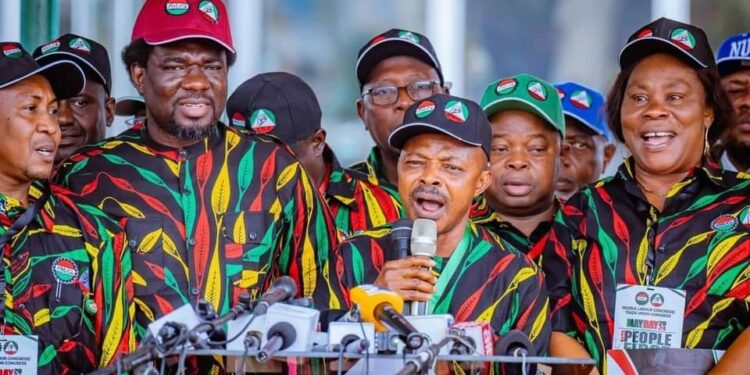The latest round of discussions concerning the ongoing negotiations on a new minimum wage has hit another snag, prompting an adjournment until Wednesday. According to a reliable source present at the meeting, organized labor swiftly rebuffed the Federal Government’s proposal of a N54,000 minimum wage. This development follows a previous walkout by labor representatives after the government suggested N48,000 as the new minimum wage during the preceding meeting.
In the midst of these deliberations, the Organised Private Sector (OPS) also tabled a proposal of N54,000, while labor remained steadfast in its demand for a N615,000 living wage. Despite the government’s effort to increase its offer from N48,000 to N54,000 during Tuesday’s meeting, labor staunchly rejected this proposition, prompting the adjournment.
Expressing frustration, a labor source, who chose anonymity, lamented the lack of seriousness exhibited by the government, noting the absence of state governors and authorized representatives from the private sector. Labor leaders expressed hope that the private sector would revise its initial offer before the resumption of negotiations.
Labor unions have reiterated their May 31, 2024 deadline for the implementation of the new minimum wage. Joe Ajaero, the National President of the Nigeria Labour Congress, emphasized the need for a N615,000 minimum wage, citing an analysis of the economic landscape and the needs of an average Nigerian family. Ajaero attributed the breakdown in negotiations to the perceived unreasonable actions of the government and the Organised Private Sector.
Following a jointly held National Executive Council (NEC) meeting by the NLC and TUC, a statement was released underscoring the urgency of reaching a fair agreement that reflects the value of Nigerian workers’ contributions and addresses the prevailing economic challenges.
The Tripartite Committee on Minimum Wage, inaugurated by President Bola Tinubu through Vice President Kashim Shettima on January 30, 2024, aims to recommend a new national minimum wage ahead of the expiration of the current N30,000 wage. The committee, comprising representatives from federal and state governments, the private sector, and organized labor, faces mounting pressure to swiftly reach a resolution.
During the panel’s inauguration, members were urged to expedite their deliberations to ensure timely submission of their report. Public hearings held across different zones in March saw various proposals for a living wage, with figures ranging from N794,000 in the South-West states, as suggested by the NLC, to N447,000 proposed by the TUC.
























